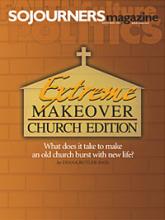For the last three years, my job has been to go to church. As the project director of a research study on vital congregations, I have spent hundreds of hours in worship, attending programs and events, and talking to pastors and laypeople from healthy and lively churches. Although the conventional wisdom limits such traits to conservative congregations, my search for vitality focused on mainline Protestants, whose old churches dot the American landscape.
Many people chuckled when I told them of my quest. “Vital mainline churches?” they asked. “That sounds like a pretty short journey!” But I am an Episcopalian who has found a meaningful way of life through ancient tradition, social justice, spiritual practices, and beautiful worship. So I set off to find some like-minded pilgrims. I hoped to learn from real people in the pews what it is that makes their churches work and to give voice to their understanding of the gospel.
While my intent was simply to locate others who practice Christianity in ways that I recognize as faithful, what I found were mainline congregations all over the United States that are actually deepening spiritually and, in most cases, growing in membership. The 50 congregations in my study embrace no evangelistic strategy, no programmatic style of
church growth. But they exhibit Christian authenticity, express a coherent faith, and offer members ways to live with passion and purpose. These churches exude a strong sense of mission and identity, which for many of them gives witness to great renewal following crisis, threatened closure, spiritual ennui, or general decline.
Read the Full Article

